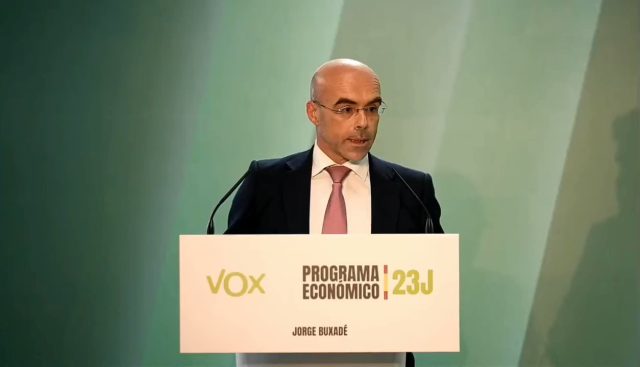
The European Commission acts quite recklessly with regards to the allocation of funds, despite the political withholding of assignments in favour of Poland and Hungary.
In its 2022 report on the Recovery and Resilience Facility, the European Court of Auditors had expressed significant concerns with regards to the handling of the facility on behalf of the socialist-communist government in Spain.
Madrid had already been granted EUR 28 billion, plus an additional EUR 9 billion as repayable loan.
The Auditors signalled that more investments in the electricity networks should be committed. On the other hand, a better organised coordination in Spain’s public administration had to be assured, so that the funds would arrive to beneficiaries rather than get lost in the way, amidst a maze of partisan bureaucracy. Finally, healthcare should be included in the plan, an item where Prime Minister Sanchez had completely failed to deliver.
Against this scenario, Mrs. Von der Leyen’s team paradoxically decided to irrigate Madrid with a further EUR 6 billion on 31 March 2023.
In line with the ECR principles of good government, MEP Jorge Buxadé submitted a formal question to the European Commission on 27 April. He pointed out that the Union institution was squandering taxpayers’ money (including that coming from Spanish nationals) by ignoring the priorities stressed by the independent Luxembourg auditors.
In fact, Mr. Buxadé anticipated to what the whole of the European Parliament resolved a month later. By way of a Budgetary Control Committee (CONT) report of 16 May, the co-legislator reminded Spanish Minister of Economy Mrs. Nadia Calvino that she had failed to justify how much of the facility had actually reached its alleged final beneficiaries.
Furthermore, some Spanish regions had not been allocated any funds without justification, other than perhaps a looming suspicion for political bias – quite in the line of the European Commission acting towards some of the above mentioned Member States. Finally, auditors access to the digital systems intended to avoid conflict of interest in Spain is unavailable to this date.
On behalf of the European Commission, Commissioner Gentiloni has just responded to Mr. Buxadé’s queries by letter of 30 June, albeit in a rather disappointing tone.
According to Gentiloni, component 8 of the Spanish Recovery and Resilience Plan already included a set of reforms and investments in electricity infrastructure, smart grids and deployment of flexibility and storage; in terms of investments, the Plan would promote the digitization of electricity grids (C8.I2) and the deployment of energy storage in order to increase the flexibility of the electricity system (C8.I1); while relevant milestones and targets would be linked to the sixth and eighth payment claims.
All of this is fundamentally irrelevant and trivial, as such information had also been taken into account by the European Court of Auditors in their report and they still found upgrades in the Spanish electricity networks insufficient. What the European Commission should do is demand additional investments of such nature. Furthermore, one fails to understand why only the sixth and eighth payment claims would serve as conditions instead of previous milestones, if the investments are judged a priority by the Union auditors as of 2022.
Similarly, the Commissioner explained that the Spanish Recovery and Resilience Plan included reforms and investments in the areas of research and development (component 17), which should foster research and innovation policy in Spain; in particular, the recently approved reform of the Law on Science, Technology and Innovation has among its main objectives to improve coordination between the different levels of government with respect to science, research and innovation policies (C17.R1). The Plan had also included investment in complementary plans in the scientific field, which constitutes a new instrument for promoting collaboration between state and autonomous administrations with respect to research, development and innovation (C17.I1).
Again, Gentiloni fails to deliver in terms of the Auditors’ report and prefers to go back to a Plan that was presented as early as April 2021, more than two years ago.
On top of that, he just gives by way of example on coordination between redundant layers of Spanish territorial administration the funds donated for research and development; as if that were an opportunity to promote collaboration between the local, regional and national entities. But what about results, and what about an overall assessment of such coordination? Silence reigns in Gentiloni’s letter, despite the formal curtain of smoke displayed by the Economy Commissioner.
Mr. Buxade has rightly called such way of acting on behalf of the Brussels authority as “unserious”.
And that is not all: With regard to healthcare, recurrent personnel and operating costs are, in the words of the Italian Commissioner, ineligible under the Recovery and Resilience Mechanism and should therefore be financed from the national budget.
Nevertheless, why not focussing on non-operating costs, an item so much needed in Spain’s healthcare system? It is rather awkward that Socialists in Madrid would accuse the opposition of eroding public healthcare, while at the same time failing to include it in their Plan, despite the requests of both the ECR and the Union auditors.
Naturally, in view of all of these trivial answers and deficient management of the Recovery and Resilience Mechanism, Mr. Buxadé has reformulated his original questions, in the hope of obtaining a more substantiated response in the coming weeks.



 Subscribe
Subscribe